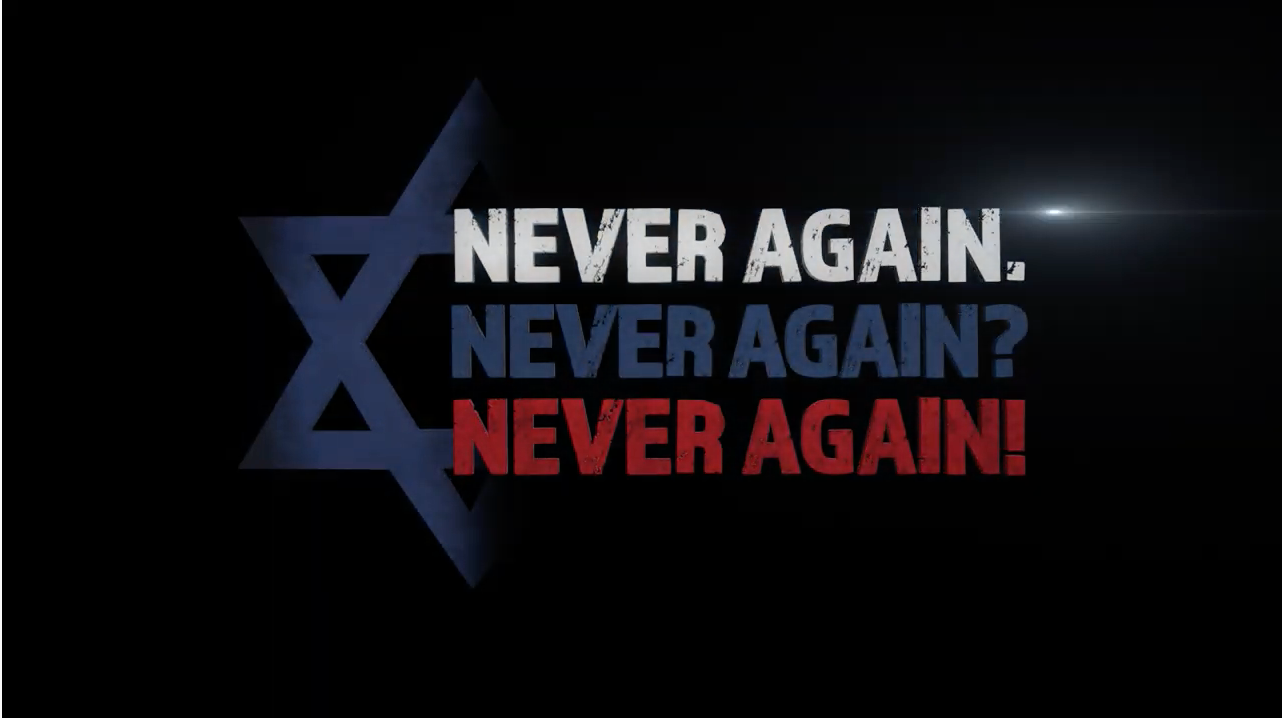Overview of “Never Again” Documentary

Never again documentary – The “Never Again” documentary, released in 2018, delves into the tragic events of the Holocaust and the aftermath of World War II. The documentary explores the rise of Nazi Germany, the systematic extermination of Jewish people and other minorities, and the ongoing struggle for justice and reconciliation.
The title of the documentary, “Never Again,” serves as a powerful reminder of the horrors of the Holocaust and the international commitment to prevent such atrocities from happening again. The documentary argues that the lessons of the Holocaust must be learned and applied to present-day conflicts and human rights violations.
Significance of Historical Context
The documentary places the Holocaust within its historical context, tracing the rise of anti-Semitism and the gradual erosion of democratic values in Germany during the 1920s and 1930s. It examines the role of propaganda, scapegoating, and the complicity of ordinary citizens in the Nazi regime’s crimes.
Impact and Legacy of the Holocaust: Never Again Documentary

The Holocaust remains a profound and enduring scar on human history, leaving an indelible mark on survivors, their families, and society as a whole. The atrocities committed during this period continue to reverberate through generations, shaping collective memory and inspiring ongoing efforts to prevent future genocides and promote human rights.
Lasting Impact on Survivors and Families, Never again documentary
- Psychological and Physical Trauma: Survivors of the Holocaust endured unimaginable horrors that left deep emotional and physical scars. Many struggled with post-traumatic stress disorder, depression, and other mental health issues throughout their lives.
- Loss and Grief: The Holocaust resulted in the loss of millions of lives, leaving countless families shattered and grieving. Survivors often carried a heavy burden of guilt and loss, mourning the loved ones they had lost.
- Social and Economic Marginalization: After the war, many Holocaust survivors faced discrimination and prejudice. They struggled to find employment, housing, and social acceptance, often living in poverty and isolation.
Efforts to Prevent Future Genocides
The Holocaust has served as a catalyst for international efforts to prevent future genocides and promote human rights. Organizations such as the United Nations and the Holocaust Memorial Museum have been established to document and educate about the Holocaust, raise awareness of genocide, and advocate for the protection of human rights.
- International Conventions: The Genocide Convention (1948) and the Rome Statute of the International Criminal Court (1998) define genocide as a crime under international law and establish mechanisms for holding perpetrators accountable.
- Early Warning Systems: Governments and international organizations have developed early warning systems to identify and respond to potential genocidal situations, such as the Responsibility to Protect (R2P) initiative.
- Education and Remembrance: Holocaust education and remembrance play a crucial role in preventing future genocides. By learning about the horrors of the Holocaust, we can better understand the warning signs and take action to prevent such atrocities from happening again.
Lessons Learned and Relevance to Contemporary Issues
The Holocaust teaches us valuable lessons about the dangers of intolerance, discrimination, and hatred. These lessons are particularly relevant in today’s world, where we face challenges such as rising hate crimes, xenophobia, and the spread of misinformation.
- Importance of Tolerance and Respect: The Holocaust reminds us that tolerance and respect for diversity are essential for a peaceful and just society. We must challenge prejudice and discrimination in all its forms.
- Dangers of Nationalism and Extremism: The Holocaust was fueled by extreme nationalism and hatred of other groups. We must be vigilant against the rise of extremist ideologies that promote violence and intolerance.
- Responsibility to Speak Out: The Holocaust teaches us the importance of speaking out against injustice and discrimination, even when it is difficult or unpopular. We must not remain silent in the face of hate and intolerance.
Historical Accuracy and Ethical Considerations
Never Again has been widely praised for its historical accuracy and its use of primary sources and expert testimony. The documentary features interviews with survivors, historians, and other experts who provide a comprehensive overview of the Holocaust. The documentary also uses archival footage and other primary sources to illustrate the events of the Holocaust.
However, some critics have argued that the documentary is too focused on the suffering of the victims and does not adequately address the role of the perpetrators. Others have argued that the documentary is too graphic and that it could be traumatizing for some viewers.
Ethical Implications
The portrayal of such a sensitive and traumatic subject matter raises a number of ethical implications. First, it is important to ensure that the documentary does not exploit the suffering of the victims. Second, it is important to be sensitive to the needs of the survivors and their families. Third, it is important to avoid creating a sense of complacency or indifference among viewers.
Never Again has been praised for its sensitivity to these ethical concerns. The documentary does not dwell on the suffering of the victims, and it does not glorify the perpetrators. Instead, the documentary focuses on the human stories behind the Holocaust and the lessons that can be learned from this dark chapter in history.